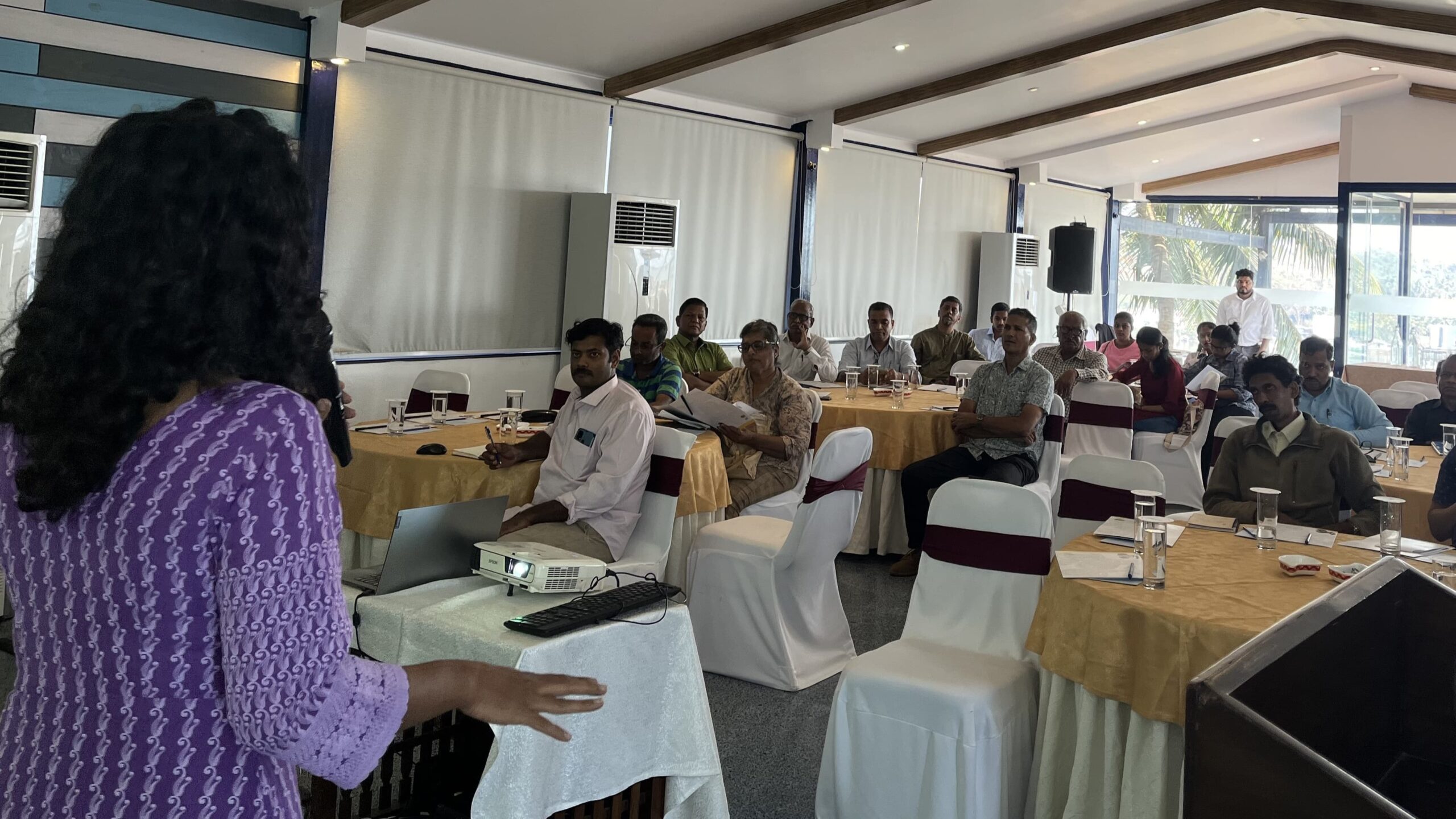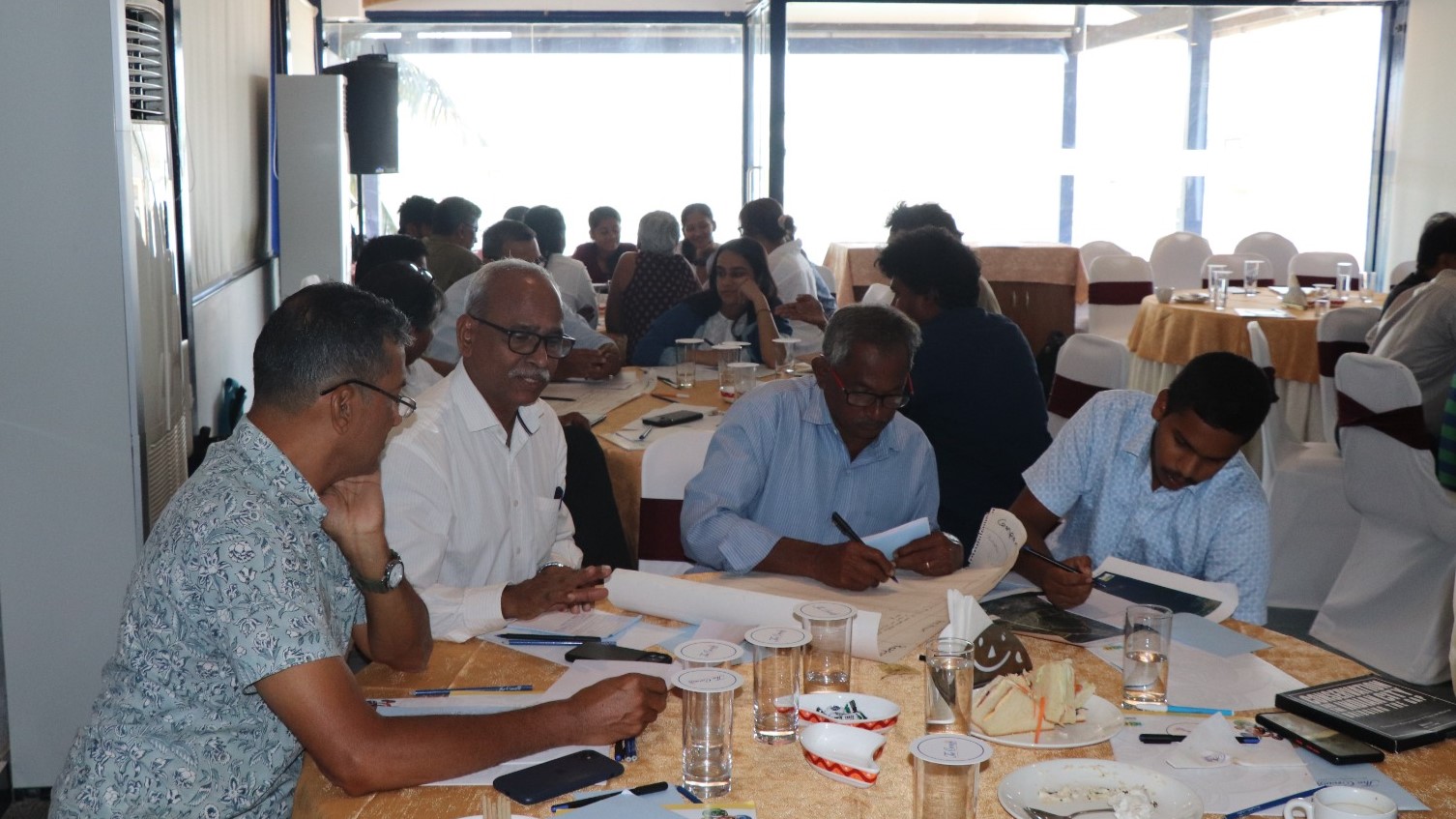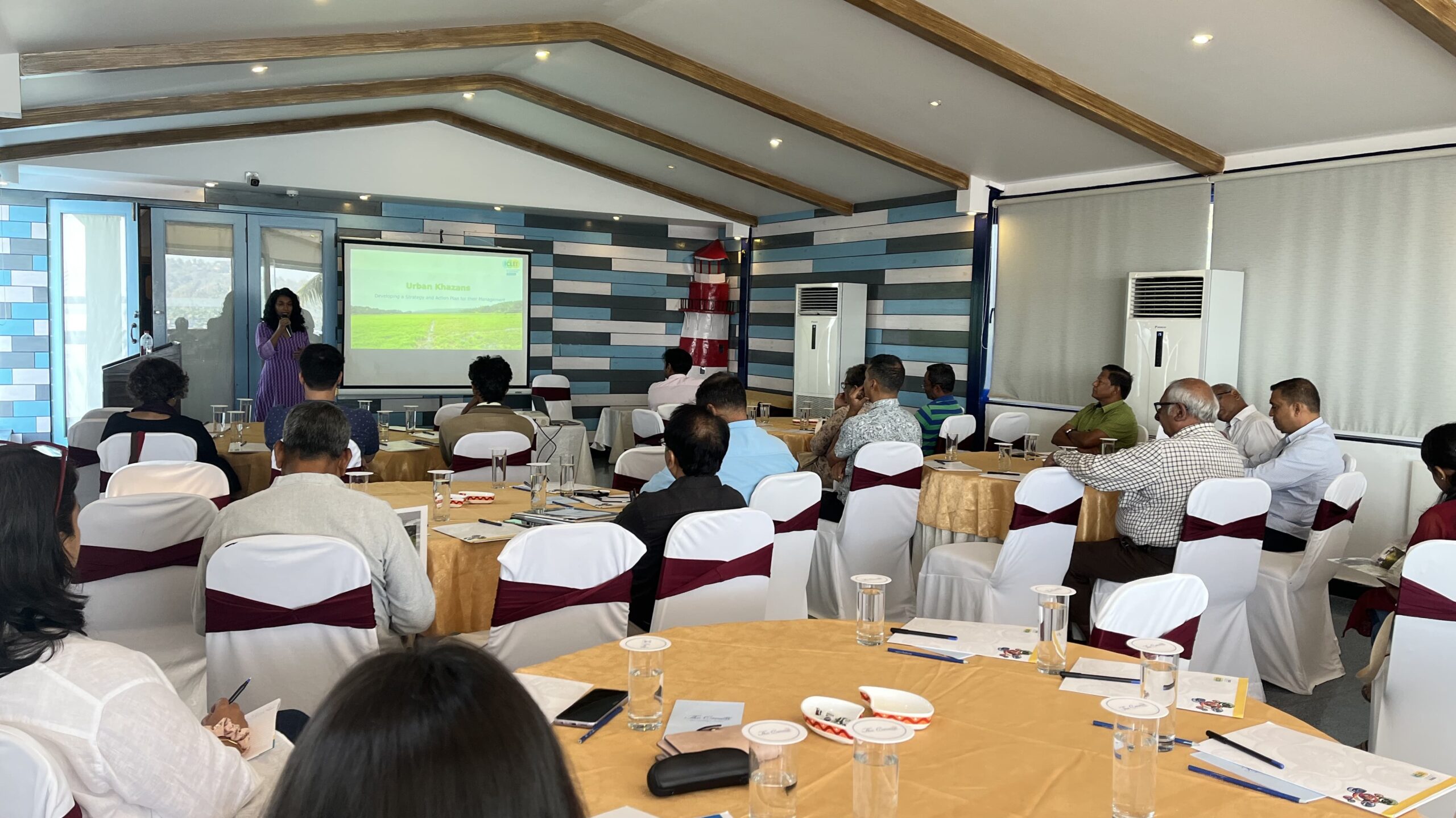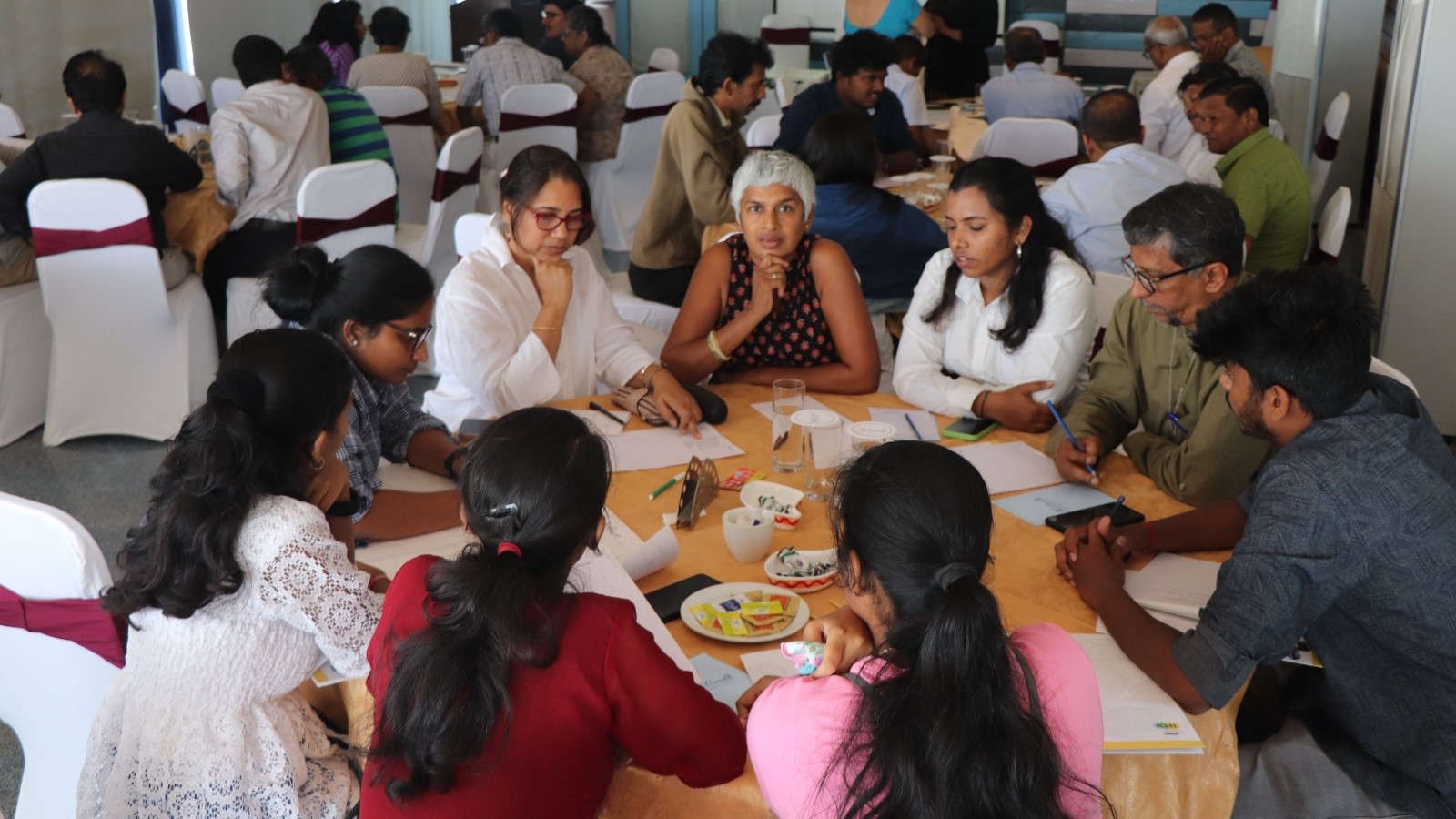Charting a Sustainable Future for Goa’s Khazan Lands

A Collaborative Workshop Puts Focus on Nurturing Goa’s Heritage Ecosystems
An important effort is taking root, starting from the scenic city of Panaji, Goa, which is setting the stage for a transformative approach towards conservation of unique ecosystems that are pivotal for both the environment and the communities dependent on them – khazans.
ICLEI South Asia is spearheading this effort and, in this connection, hosted a day-long workshop in Panaji on February 25, 2024, aimed at protecting and sustainably developing khazan lands in and around Goa’s capital city. The workshop brought together over 30 stakeholders, including environmental experts, government officials including representatives from the Goa State Biodiversity Board, khazan landowners, research institutions, cultivators, subject matter experts, and other organisations, underscoring the collective effort towards crafting a resilient future for these unique ecosystems.
This workshop, supported by Azim Premji University, Bengaluru, and part of the “Need for an Urban Policy on Khazans – Ensuring Sustainable and Climate-Resilient Urban Development” project, aimed to set the stage for a comprehensive strategy and action plan that integrates khazan conservation into urban planning.
A heritage ecosystem nestled within Goa’s estuarine basins, khazan lands are a testament to a centuries-old harmonious blend of natural and human ingenuity. These areas, characterised by their intricate system of bunds and sluice gates, serve not only as crucial environmental buffers against climate change but also as vital sources of livelihood through agriculture and aquaculture.The urgency to protect these lands stems from their dwindling presence, largely due to urban expansion and climate-induced vulnerabilities.
The workshop unveiled the findings of an extensive study, being carried out by ICLEI South Asia since 2021, on the current state and management challenges of khazans in areas around Panaji. The findings included a situation analysis of the physical and governance aspects of khazans located in Panaji, Taleigao, St. Cruz, and Merces. The discussions during the workshop facilitated a participatory approach, enabling stakeholders to identify actionable points for the development of a local strategy and action plan for khazans, which would be the first of its kind.
Dr. Pradip Sarmokadam, Member Secretary, Goa State Biodiversity Board, highlighted the collaborative spirit of the workshop, and the importance of preserving the ecological and socio-economic value of khazan lands. The gathering not only showcased the rich cultural and ecological significance of khazans, but also laid down a roadmap for policy formulation aimed at their preservation, Dr Sarmokadam accentuated.
Khazans are more than just agricultural fields; they are natural defences against sea-level rise, flooding, and other climate-related threats. The decline of this ecosystem, especially around urban centres like Panaji, poses a significant risk not only to biodiversity but also to the communities that depend on them.
In Goa, khazans are spread across estuarine basins, including in Tiracol, Chapora, Baga, and the Mandovi-Zuari complex, as well as along the Cumbarjua canal, and the Sal, Talpona, and Galgibaga Rivers. Covering eight of the 11 talukas, these lands originally spanned approximately 17,500 hectares, according to the Directorate of Agriculture, Government of Goa. However, over the past 30 years, there has been a concerning reduction in khazans, particularly around urban centres such as Panaji.
The workshop underscored the need for a shift away from conventional grey infrastructure towards embracing traditional, nature-based solutions like khazans. Throughout the workshop, a series of group exercises underscored the participatory approach that delved into a thorough dialogue, pinpointing the diverse challenges and uncovering opportunities in the realm of khazan land management. This collective brainstorming was aimed at compiling a robust list of actionable strategies destined to drive real-world outcomes. These strategies, ranging from policy recommendations to on-the-ground conservation efforts, are designed to seamlessly integrate khazan management and preservation into the broader scope of urban planning.
The event marks a significant milestone in the journey towards safeguarding Goa’s khazan lands. It is a call to action for policymakers, researchers, and the community to unite in preserving these landscapes for future generations. The insights and collaborative efforts spawned by this workshop promise a hopeful path towards sustainable urban development, in alignment with the broader Sustainable Development Goals.
As we move forward, ICLEI South Asia remains committed to sharing updates and progress on the strategies and actions arising from this vital workshop. It is through such collective endeavours that we can ensure conservation of critical ecosystem services and maintain the unique heritage of Goa’s khazan lands.



